From words to action: Governments must use the UN tax talks to deliver fair global tax rules and climate finance
Greenpeace International
New York, United States – As the fourth round of UN Tax Convention negotiations concluded on Friday, governments face a defining choice: seize this once-in-a-generation opportunity to reform global tax rules so they work for people and planet – or retreat to defending systems that are failing to deliver fairness, justice and adequate revenues for combating the most pressing challenges of today.[1] Nina Stros, Global Senior Policy Expert at Greenpeace International’s Political Unit, said: “This round of UN Tax Convention negotiations saw the liveliest debates so far on reforming global tax rules to enhance climate action, sustainable development and hold the super-rich to account. It’s clear that the game is now on for securing a strong outcome on taxing the world’s biggest polluters. “As fossil fuel-driven floods, storms and hurricanes hit more and more countries, and inequality widens as the world approaches its first trillionaire, negotiators are starting to wake up to the huge opportunity. The UN Tax Convention is a once-in-a-generation chance to shift investment away from polluting activities, redistribute wealth, and raise hundreds of billions for climate resilience and public services – without adding to the tax burdens of citizens and consumers.” Greenpeace International’s key takeaways from INC-4: “Action on fair global tax rules that hold polluters to account is a no-brainer. Countries are losing hundreds of billions of dollars each year to multinational and super-rich profit shifting. This action is also hugely popular with the public across right and left-wing voters, as extensive polling has shown. Governments must not settle for vague language that protects the status quo, a fair and sustainable economy is at stake,” Stros adds. The Intergovernmental Negotiating Committee (INC) Fifth Session will be from 3 to 13 August 2026 in New York. ENDS Notes [1] New global tax rules in an UN Framework Convention on International Tax Cooperation are being negotiated until 2027. It aims to take control of global tax rules from the rich OECD countries and place it in the hands of the 193 member states of the United Nations. Contacts Lee Kuen, Global Comms Lead – Fair Share campaign, Greenpeace International. +601112527489, lkuen@greenpeace.org Greenpeace International Press Desk, pressdesk.int@greenpeace.org, +31 (0)20 718 2470 (available 24 hours) Texte intégral (604 mots)
Waves of Hope: our seven wishes for the oceans in 2026
Taís Terra
In Brazil, there is an interesting myth: if you jump seven little waves during New Year’s Eve and ask for your wishes for the following year to come true, Iemanjá – an Orixá, a divine spirit or deity in the Yoruba religion of West Africa that is also part of Afro-Brazilian spiritual traditions – will bring you good energy to the year that is about to begin. So here’s our own wishlist for global ocean protection in 2026: The Global Oceans Treaty came into force on 17 January, after reaching the required 60 ratifications. The treaty agreement creates a legal framework to protect marine ecosystems in international waters and will allow, for example, the creation of marine protected areas and environmental impact studies of economic activities in the high seas. The first Oceans Conference of the Parties (COP) in the next year is an opportunity to transform intentions into plans and concrete priorities as part of a global plan. The scientific and environmental community will continue to apply pressure in the lead up that this first COP speeds up the conservation of highly vulnerable ecosystems. Part of the challenge of protecting the oceans is the amplification of marine protected areas on a global scale, a compromise agreed upon by countries when establishing the goal to protect at least 30% of oceans by 2030. In the South Atlantic Ocean, a strategic region for climate balance and marine biodiversity, this need becomes even more urgent. Along with having fragile ecosystems and fundamental migration routes, the area is profoundly connected to the lives of peoples who depend on the seas, whose traditional ways, knowledge and culture are inseparable from the ocean. Governments need to monitor and regulate activities such as fishing, tourism and environmental licencing on coastal regions. The oceans agenda must be integrated into critical 2026 elections to safeguard the public policies that take in consideration the ways of life of coastal communities, and their public health along with climate adaptation. In 2026, there will be various elections in about 60 countries around the world – some of them being general elections, as in Brazil and New Zealand, and others more specific, like in Colombia and the United States. Public policies directly influence ocean protection, including mangroves conservation, and reefs and beaches that are fundamental to the effective implementation of action towards ocean conservation. Oil exploitation in the Amazon river mouth has demonstrated real environmental risks. In January 2026, less than 3 months after the concession of the licence, a drilling fluid leak was registered during Petrobras activities. Although the Brazilian company confirmed that the material was under the limits of low toxicity, the incident has been taken to the National Agency of Petroleum, Natural Gas and Biofuels to request formal clarifications. Greenpeace Brazil has teamed up with eight other civil society organisations and networks from the Brazilian environmental, Indigenous, Quilombola, and artisanal fishing movements to take legal action in Amapá, an Amazon State, to cancel this licence, defending the precaution principle and the need to listen to local communities and the protection of one of the most sensitive marine ecosystems of the planet. In 2026, the International Seabed Authority (ISA) meeting in March may finalise rules that lead to the development of deep sea mining, an activity capable of causing irreversible damage to ecosystems that humans do not even yet understand. This will be a critical moment to reinforce the growing ask from countries in favour of the mining moratorium in deep ocean waters, as the US government already threatens to authorise The Metals Company permission to begin to exploit the Pacific Ocean, bypassing ISA discussions. Countries must make good use of these political spaces to cement decisions based on science while holding the cultural values that the ocean represents to coastal region people and the protection of marine biodiversity. Plastic pollution is recognised as one of the major threats to marine ecosystems, affecting human and ocean’s health. While finalisation of the Global Plastic Treaty, an agreement that will provide guidelines for confronting this kind of global pollution, was suspended last year, governments will need to reach a strong agreement when talks resume later this year. The protection of the oceans needs to guarantee that whales have a safe space to sing, to migrate, to reproduce and to raise their calves. These giants of the ocean not only face historic hunting and plastic pollution, but also much bigger risks such as deep sea mining. For decades, Greenpeace has been acting to defend the whales and their habitats. In 2026, we will keep supporting and strengthening action to protect international waters. Protecting whales is protecting the balance of the oceans, marine life as a whole and promoting a more respectful relationship between people and planet. Add your name to call on leaders to create new ocean sanctuaries and protect our blue planet. Taís Terra is a Campaigner with Greenpeace Brazil. Texte intégral (2016 mots)
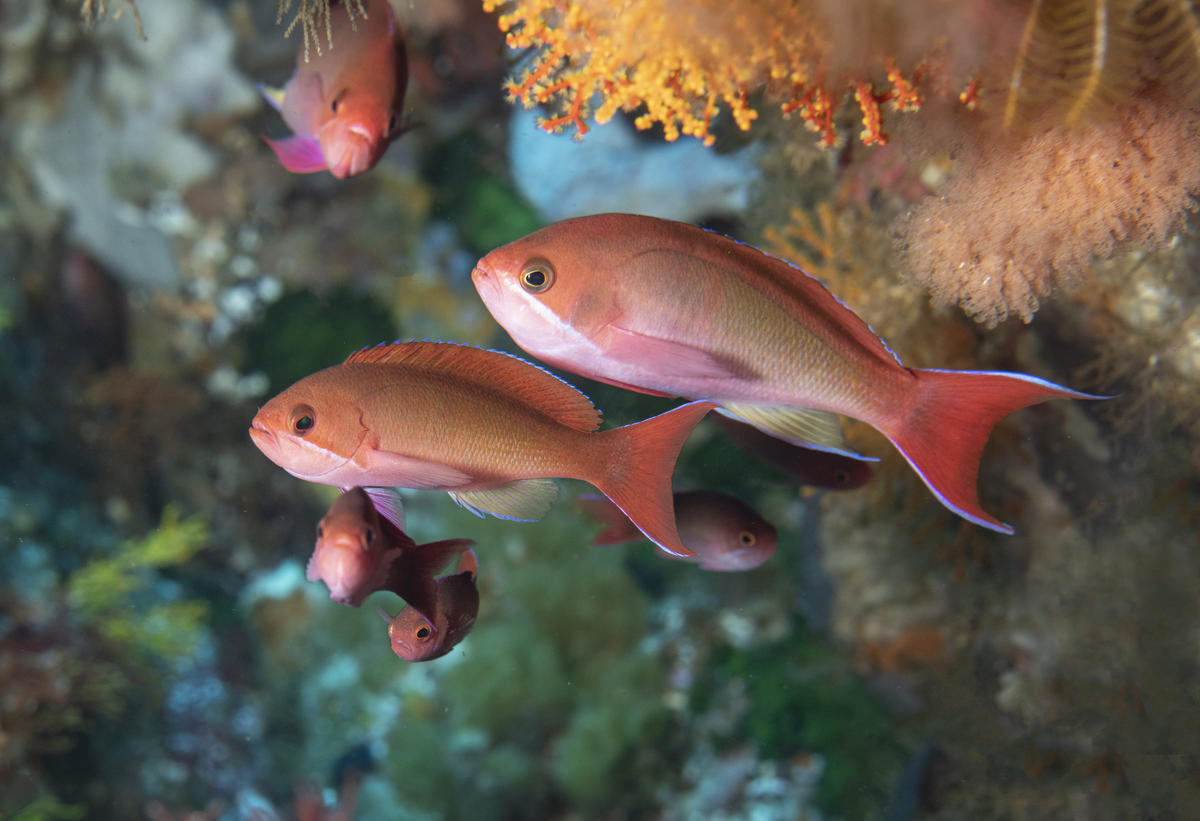
1. Strong outcomes for the first Oceans COP
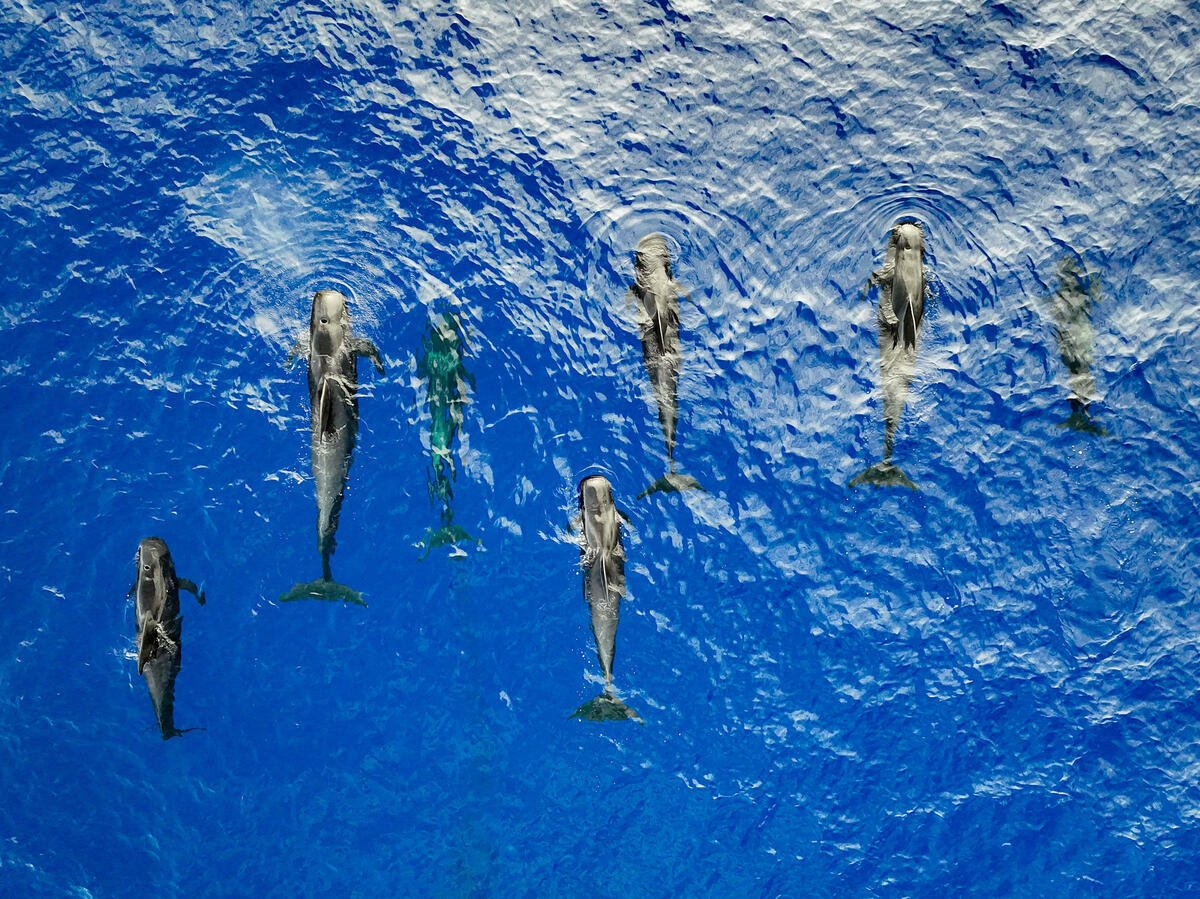
2. Real proposals for protecting the South Atlantic Ocean
3. Attention to coastal region elections
4. Suspension of the licence in the Amazon river mouth
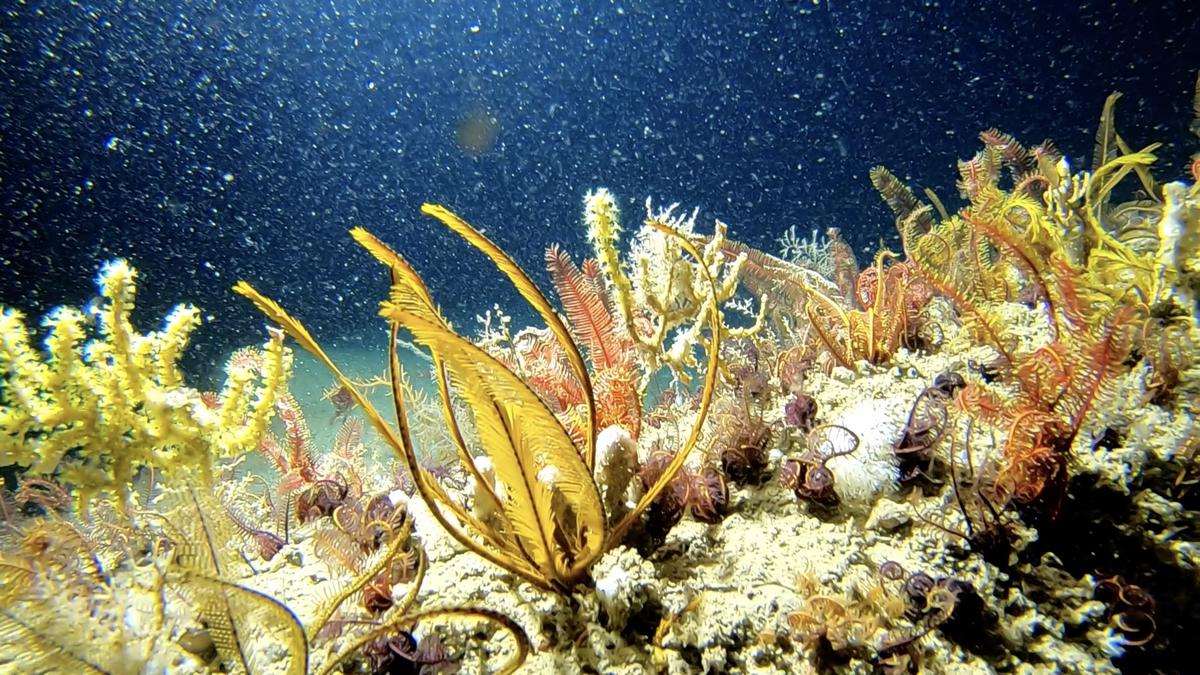
5. No mining in deep sea waters
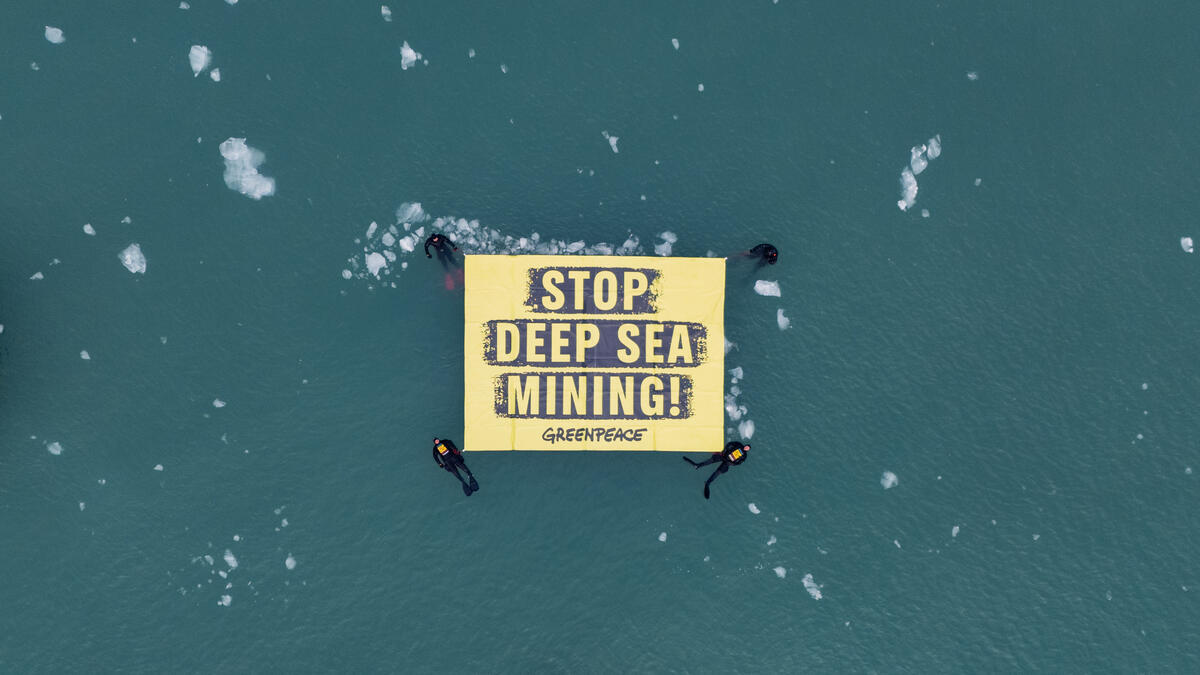
6. Combating plastic pollution in the oceans
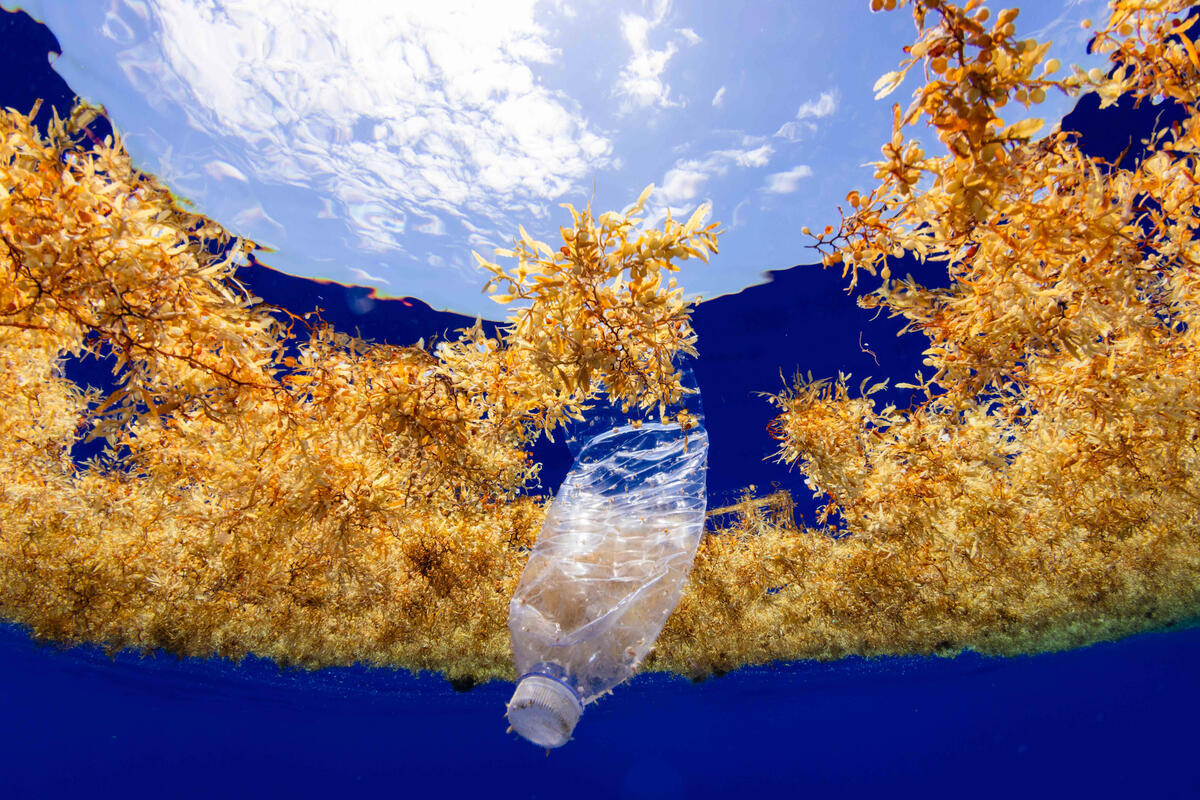
7. More space for whales to sing and to live
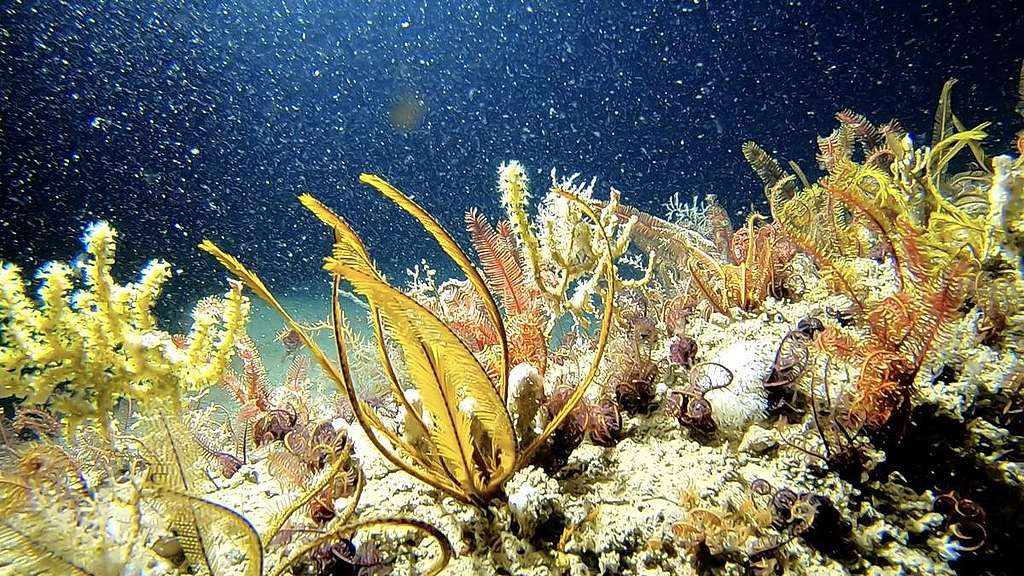
Greenpeace Pictures of the Week
Greenpeace International
The Grim Reaper at the Washington Post, a mobilisation against pesticides and many more actions around the world. Here are a few of our favourite images from Greenpeace work this week. Comment below which you like best! The Netherlands – Activists from Greenpeace Netherlands occupy the main terminal of Lelystad Airport, Netherlands. The group is calling on the new government to cancel plans for opening the airport to commercial leisure traffic. United States – Days after the Washington Post fired 300 journalists, including 14 full-time climate reporters, a Greenpeace activist dressed up as Jeff Bezos, the owner of the paper, stands in front of their flagship building on K Street in downtown Washington, DC. Bezos, one of the richest men in the world, also owns Amazon and AWS. Critics denounced Bezos cutting news and investigative staff while retaining its masthead slogan, “Democracy Dies in Darkness.” Gambia – The first day of public opening of the Arctic Sunrise took place on 5 February 2026 in Banjul, The Gambia. The day was marked by an official ceremony held on board, bringing together Gambian authorities, institutional partners, and representatives of civil society to mark the vessel’s arrival in Gambian waters. Germany – During the Munich Security Conference, Greenpeace activists protest with larger-than-life sculptures of US President Donald Trump and Russian President Vladimir Putin on Marienplatz in Munich. The two heads of government stand on a 10-metre-long model of a gas tanker with the words ‘Fossil Gas’ written on its side. Greenpeace activists hold banners reading ‘Safe energy instead of gas dependency’ and ‘Break Free From Tyrants’. France – 1,500 citizens, farmers, scientists, healthcare professionals, agrochemical victim collectives, and civil society organizations gathered in Paris to denounce the environmental and health setbacks caused by current agricultural policies, particularly the Duplomb Law being debated in the National Assembly. The citizen mobilisation continued with the “Cancer Anger” Citizen Choir and speeches by representatives of the associations, collectives, and organizations present. The Netherlands – Activists from Greenpeace Netherlands occupy the main terminal of Lelystad Airport, Netherlands. The group is calling on the new government to cancel plans for opening the airport to commercial leisure traffic. Germany – Greenpeace activists protest with the message ‘Break Free From Tyrants’ on a 90-square-metre banner on a crane in the early morning hours near the Munich Security Conference. The reason for the protest is Europe’s dependence on liquefied natural gas supplies from Russia and the United States. Both US President Trump and Russian President Putin use energy supplies as a means of exerting pressure. Greenpeace has been a pioneer of photo activism for more than 50 years, and remains committed to bearing witness and exposing environmental injustice through the images we capture. To see more Greenpeace photos and videos, visit our Media Library. Texte intégral (1546 mots)
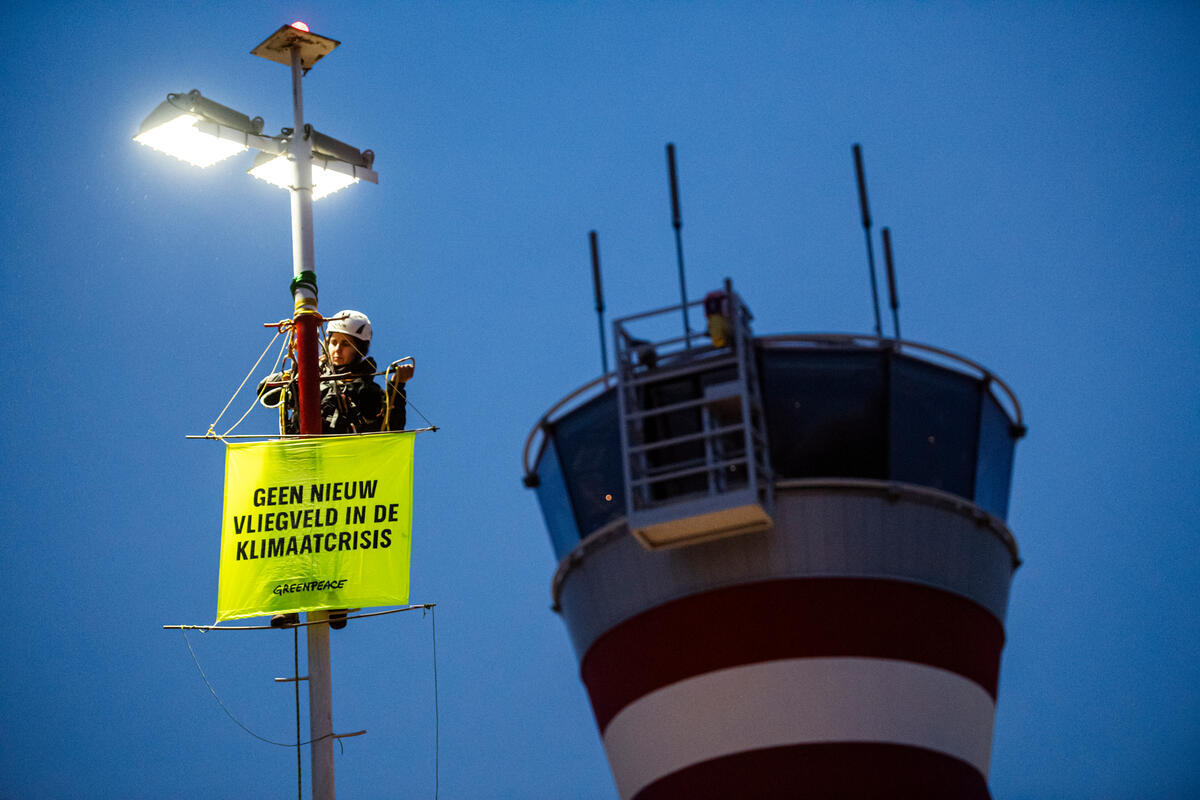

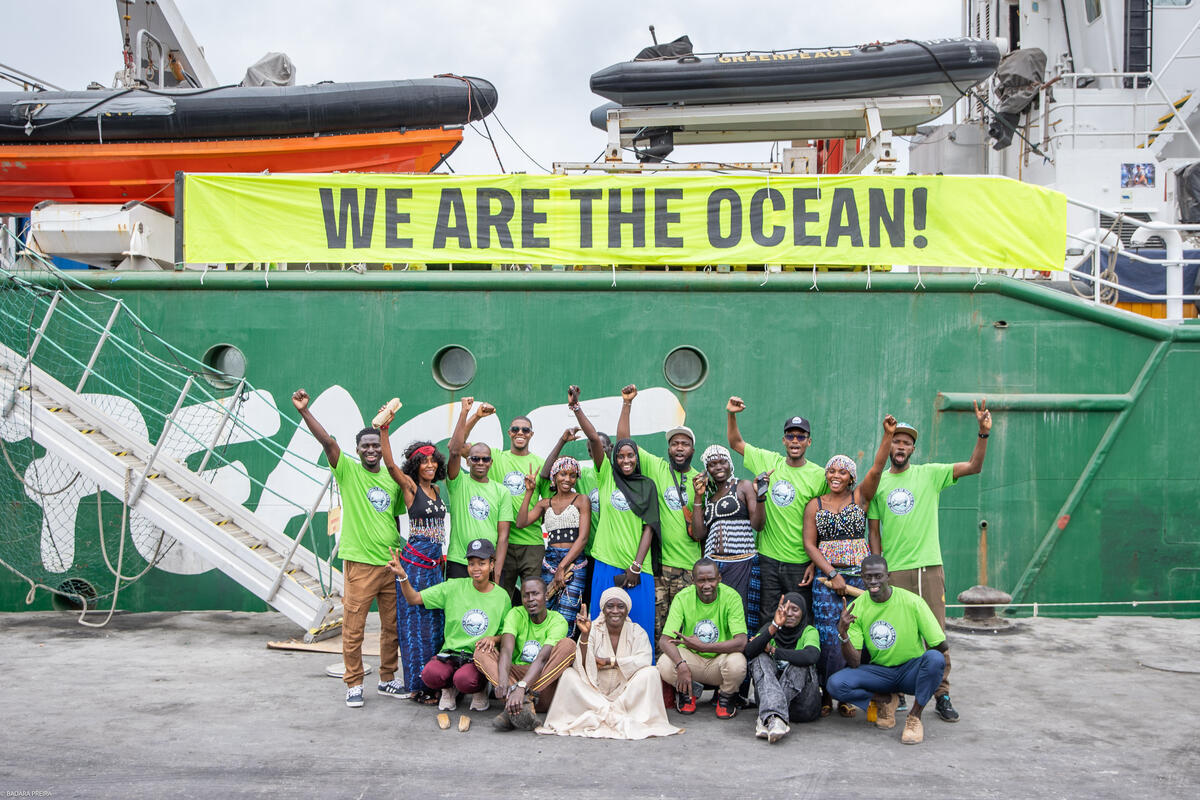
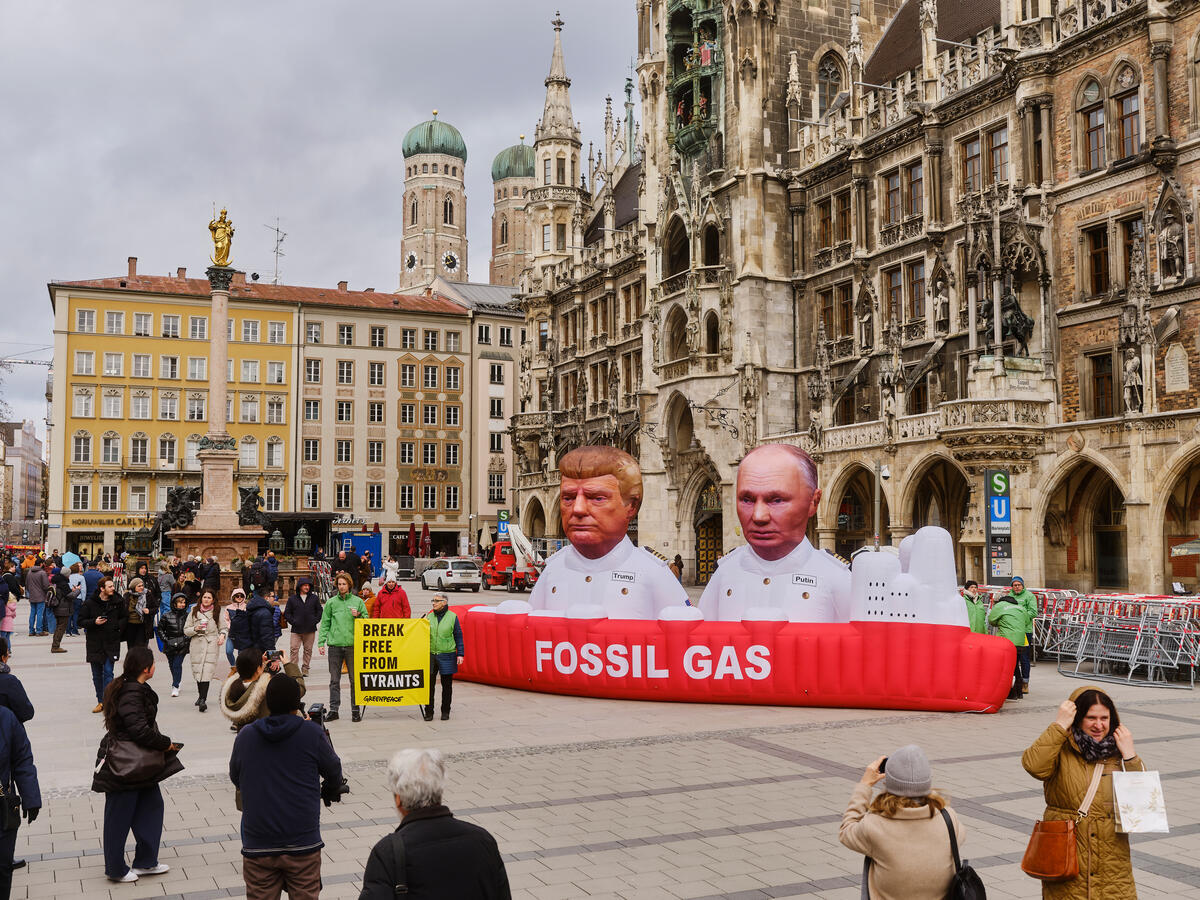
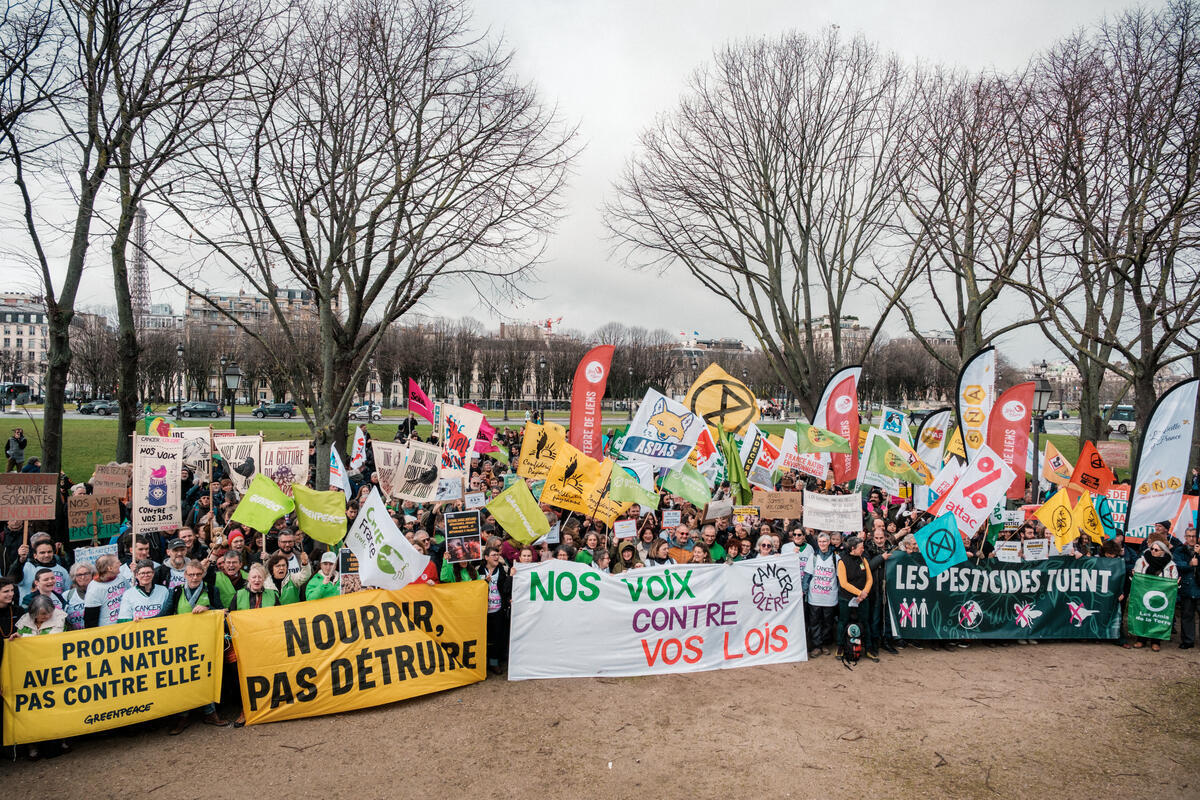
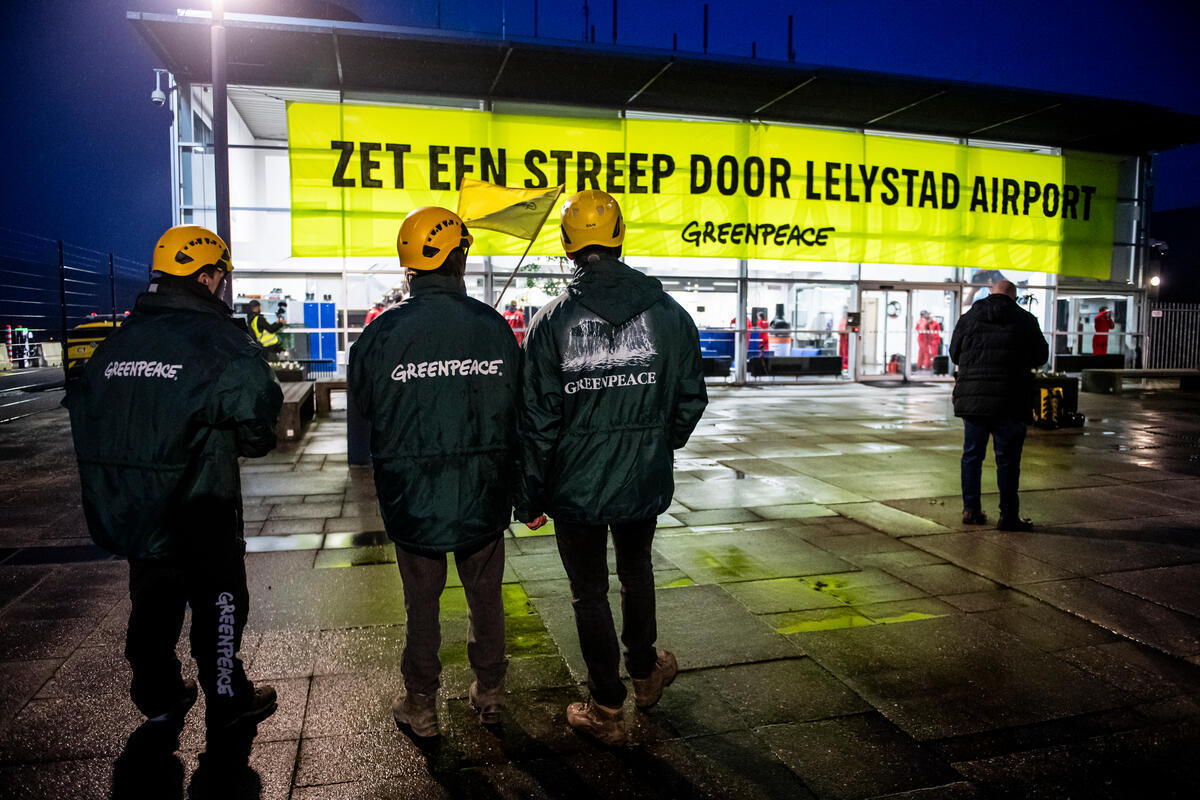
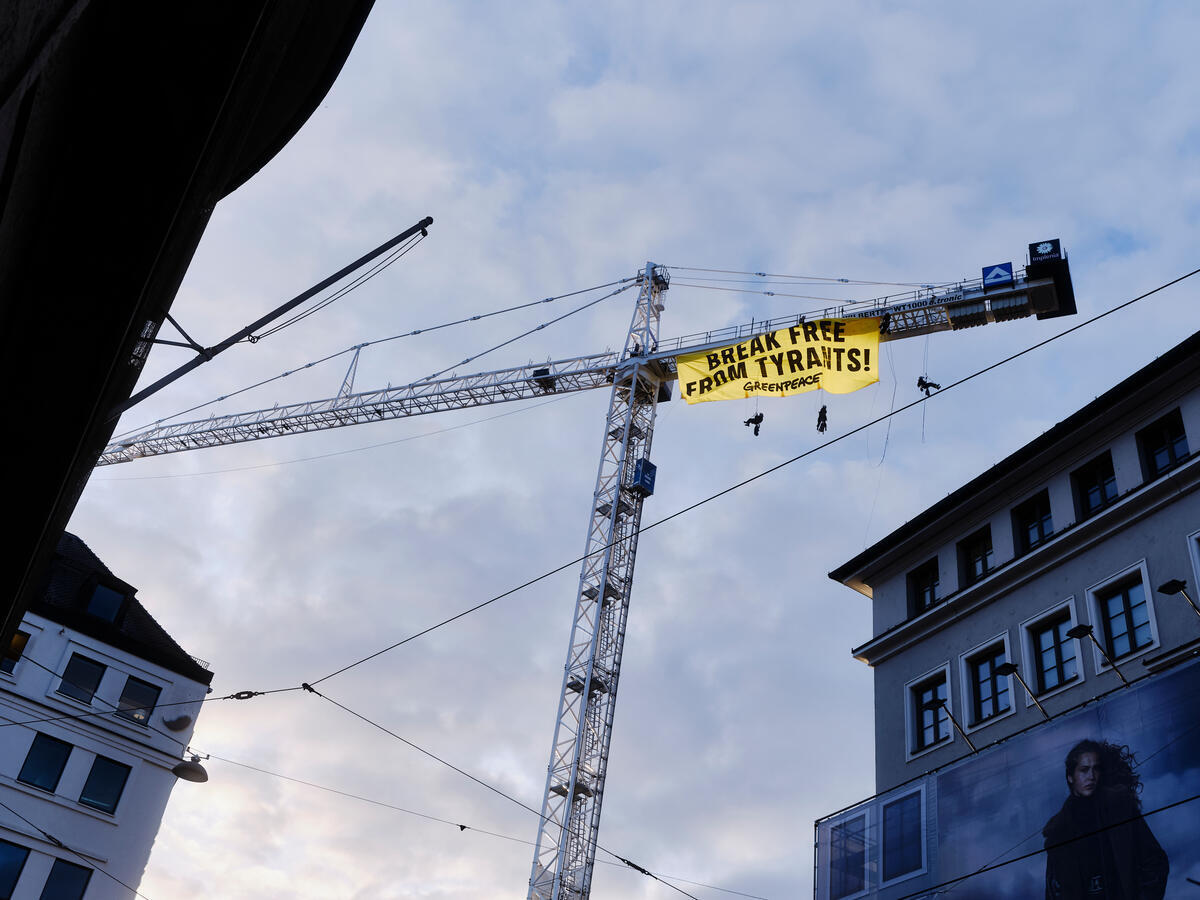
Bon Pote
Actu-Environnement
Amis de la Terre
Aspas
Biodiversité-sous-nos-pieds
Bloom
Canopée
Décroissance (la)
Deep Green Resistance
Déroute des routes
Faîte et Racines
Fracas
F.N.E (AURA)
Greenpeace Fr
JNE
La Relève et la Peste
La Terre
Le Lierre
Le Sauvage
Low-Tech Mag.
Motus & Langue pendue
Mountain Wilderness
Negawatt
Observatoire de l'Anthropocène
